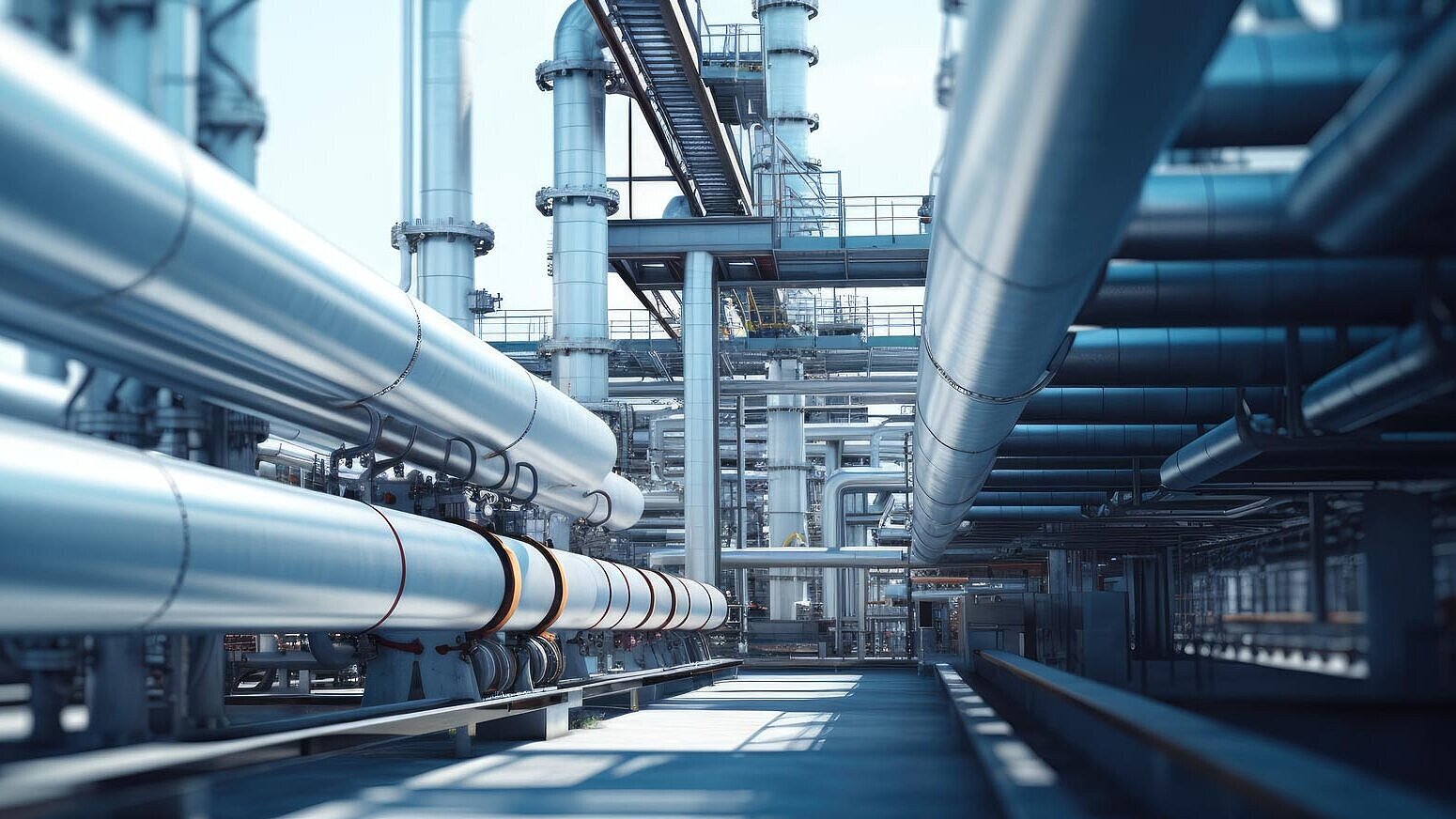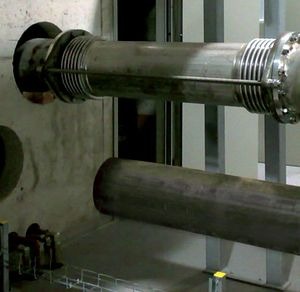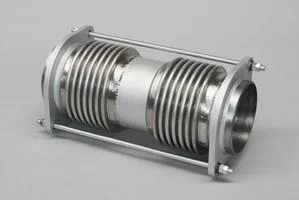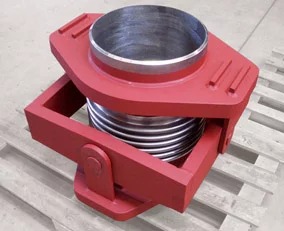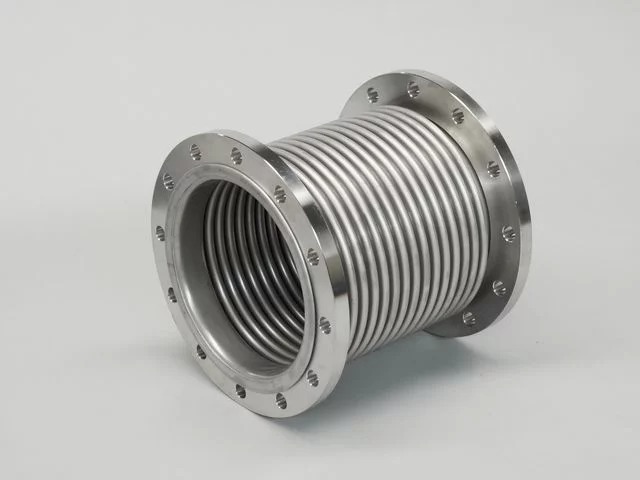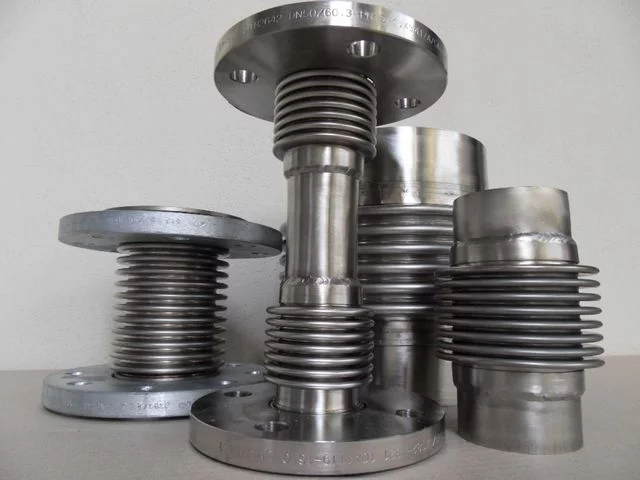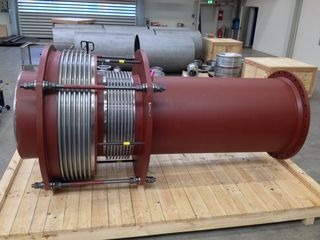Lateral expansion joints in a pipe system
Often a compensating element in the form of an expansion joint is required if it is not possible to compensate the expansion in the piping systems by simple design measures.
Depending on the type of movement, a distinction is made between axial, lateral and angular compensators.
Depending on the type of movement, a distinction is made between axial, lateral and angular expansion joints. The fixed points in the piping system are loaded with the following forces:
- Pipe friction force
- Spring stiffness of the metal bellows (axial, lateral and angular)
- pressure reaction force of the metal bellows (F = p x A)
In a properly designed pipeline, only one axial expansion joint between 2 fixed points must be provided. The spring rate of the metal bellows cannot withstand the pressure reaction force, caused by the internal pressure. If the fixed point is not dimensioned correctly, then the piping system is pushed apart.
See also Flexomat's installation instructions for expansion joints.
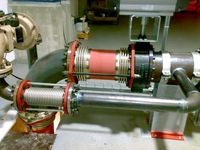
compressor test stand
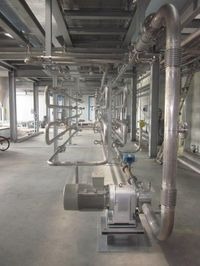
pipe system in a chemical plant
Universal expansion joints in a pipe system
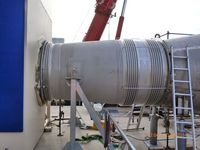
exhaust pipe
Universal expansion joint in a exhaust pipe
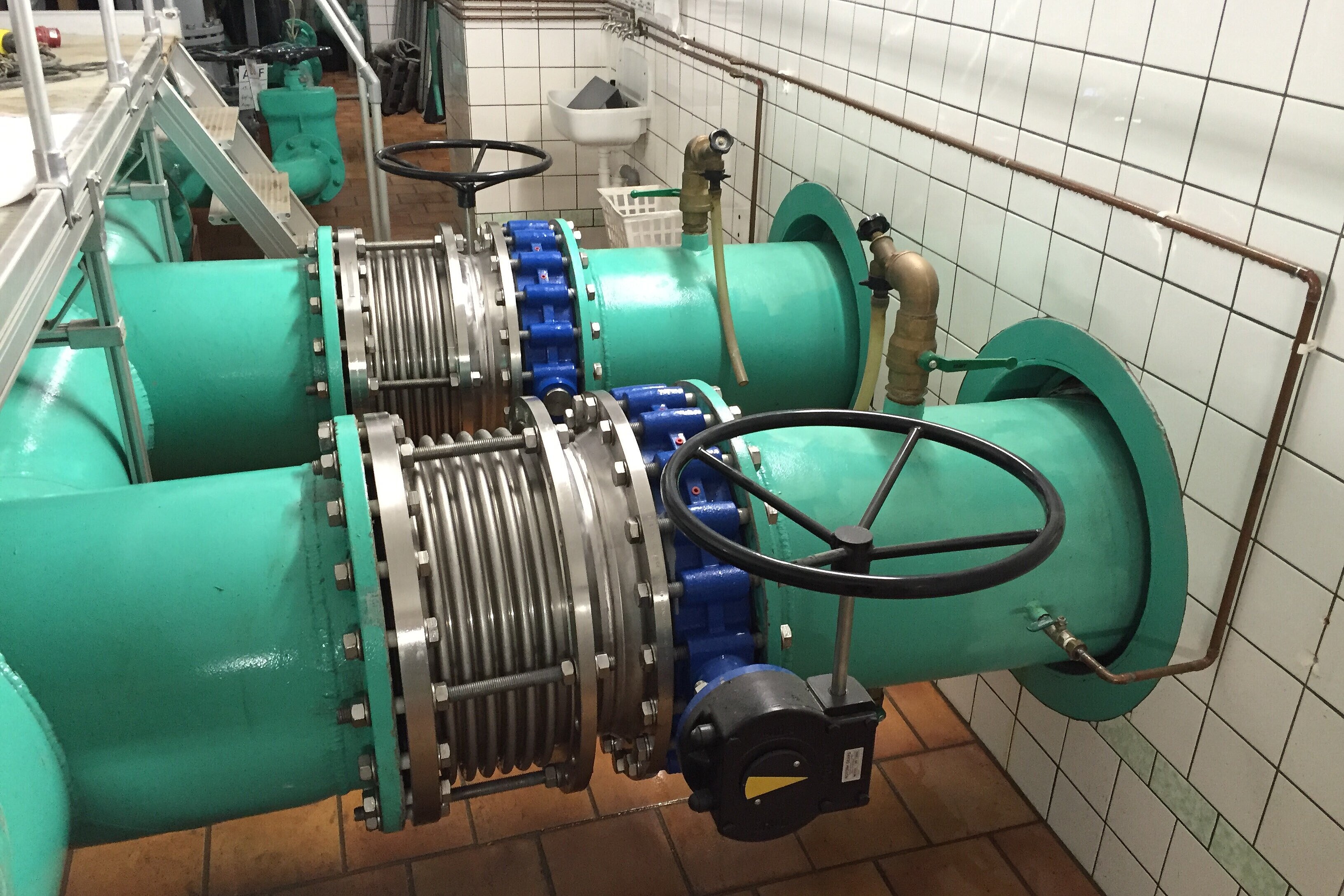
bellows dismantling joints
Axial expansion joint for an easy mounting and demounting of valves or similar devices
Lateral expansion joints
absorb movements vertical to the bracing plane
Angular expansion joints
absorb axial offset through angular movement
Axial expansion joints
compensate assembly tolerances and thermal longitudinal expansion in the direction of the tube axis.
Universal expansion joints
absorb simultaneous axial, lateral and angular movements
Special designs
are used in particularly demanding applications or customer requests.

